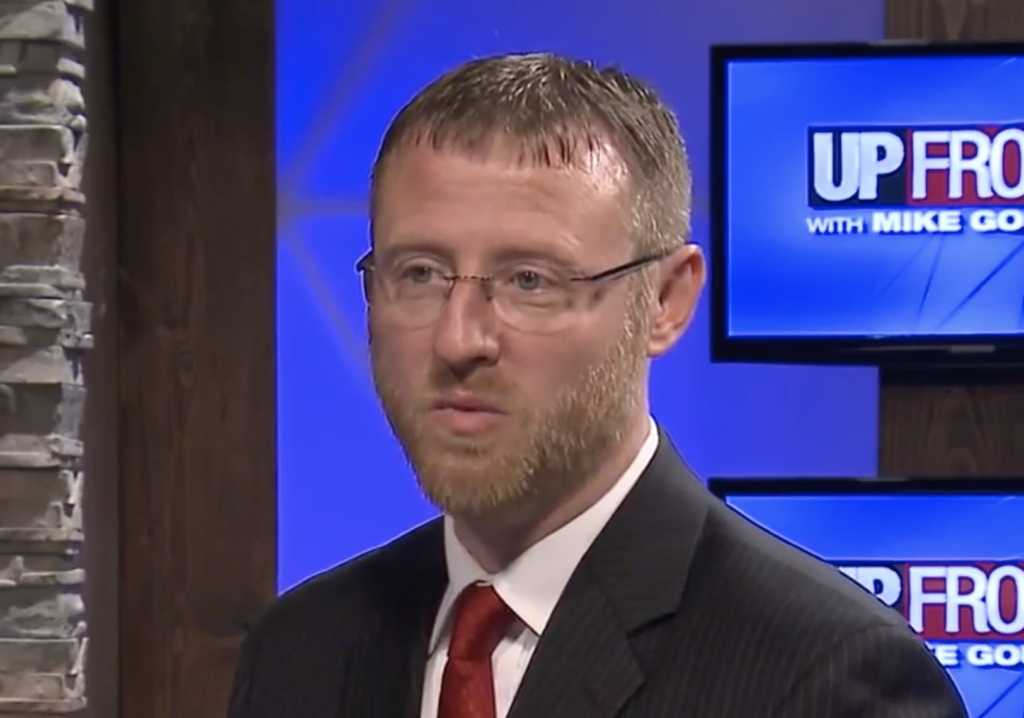There’s no religious test for public office — or so the U.S. Constitution claims.
With just weeks to go until Wisconsin’s Supreme Court race is over, candidate Brian Hagedorn, who currently serves as a judge on the state’s court of appeals, is facing an onslaught of attacks over his Christian faith.
But it’s nothing he wasn’t expecting, the judge told The Federalist.
“I expected to be attacked here, because that’s what’s happening all across the country — you know, ‘Are you now or have you ever been associated with the Knights of Columbus?’” Hagedorn said, referring to President Donald Trump’s nomination of Brian C. Buescher to serve on the U.S. District Court of Nebraska.
Democrats Question Trump Judicial Nominee’s Fairness Because He’s a Member of a Catholic Charity
In December, Sens. Kamala Harris (D-Calif.) and Mazie Hirono (D-Hawaii) were very concerned by Buescher’s association with the Knights of Columbus, citing the Catholic charity’s “number of extreme positions,” namely its opposition to same-sex marriage.
Such tests should be considered unconstitutional. After all, the Constitution states in Article XI: “No religious test shall ever be required as a qualification to any office or public trust under the United States.”
That, however, does not seem to be the case for judges like Hagedorn — you know, judges who happen to also be Christians.
“Interrogating people [nominated for office] if they went to a Bible study or the Knights of Columbus,” he lamented, “that’s where we are as a country.”
What kind of attacks has Hagedorn faced?
Hagedorn has faced a handful of mischaracterizations, including a recent post from Think Progress in which writer Zack Ford claimed the judicial candidate “compared homosexuality to bestiality” in a 2005 blog post unearthed by the Milwaukee Journal Sentinel.
In reality, Hagedorn’s point was that the Constitution never addresses any supposed rights to sex with anyone or anything. Paraphrasing then-Supreme Court Justice Antonin Scalia’s dissent, which was cosigned by two other justices, Hagedorn argued striking down sodomy laws simply because states are not constitutionally permitted to outlaw sexual activity citizens consider “immoral and unacceptable” eliminates the groundwork for “criminal laws against fornication, bigamy, adultery, adult incest, bestiality, and obscenity.”
Scalia’s point — with which Hagedorn agreed — was that LGBTQ activists should persuade lawmakers and citizens that sodomy laws in particular are unconstitutional rather than ask the courts to do away with the legal framework that criminalized sexual activity deemed harmful to the public good.
Senators Grill Trump Nominee, Concerned About Her Christian Views
Hagedorn told The Federalist media reports have been “misleading” regarding his comments about homosexuality and the high court’s ruling on Lawrence v. Texas.
“The argument I was making was nothing other than what three Supreme Court justices made in that very case,” he said. “The Lawrence v. Texas decision’s logic was not strong. I am not myself interested in relitigating all those issues today, but that argument that was made was just tracking that Supreme Court case.”
The Wisconsin judge is also facing criticism over the Christian school he and his wife helped establish.
Several articles, from outlets like Wisconsin Public Radio and the Associated Press, have claimed the school Hagedorn founded bans LGBTQ students, faculty and staff.
The reports cited the school’s policy forbidding students, parents and teachers from ‘participating in immoral sexual activity (defined as any form of touching or nudity for the purpose of evoking sexual arousal apart from the context of marriage between one man and one woman).’”
But that policy can only be anti-LGBTQ if its restrictions apply only to LGBTQ people. The policy is about sexual activity — for anyone — outside of a marriage between a man and a woman.
Can Hagedorn rule impartially?
Regardless, as a judge, it’s Hagedorn’s job to separate himself from those personal convictions in order to apply the law impartially, and there’s no reason to believe he’d be incapable of doing just that.
“My job as a judge is to say what the law is and not what it should be,” he said. “This is an effort to attack me for my faith and take this [campaign] in directions that are irrelevant to the job that I’m doing of applying the law faithfully.”
And because of his conservative convictions, Hagedorn said he would have no issue ruling objectively.
“Any judge who does not regularly issue a decision he does not agree with is not a good judge,” he explained. “My job is not to decide whether I like the law or policy or not. We need to stop politicizing our courts and stop incorporating one’s own views into judicial decision-making.”



